One of the contents that experts focused on discussing at the forum "Establishing a new growth model for Vietnam in the period of 2026-2030, with a vision to 2030" on July 15 in Hanoi was how to approach science and technology, innovation and digital transformation to be worthy of being the main driving force in transforming the economic model, contributing to achieving the target of high growth and double-digit growth in the coming time.
Associate Professor, Dr. Le Xuan Ba - former Director of the Central Institute for Economic Management (CIEM) agrees with the general direction of the Party and State to transform the growth model from breadth to depth, with a focus on science and technology. However, he said, "the key question is not what, but how can science and technology really develop in Vietnam?".
According to Mr. Ba, although science and technology have always been identified as a top national policy, in reality it has not developed as expected due to three core reasons that need to be resolved.
Firstly, in terms of how to do it, the problem lies not only in the level of state investment, but also in the management method. The state is intervening too deeply, even "covering the whole ministry". Instead, the state should only identify a few strategic areas to focus on, and let the market operate the rest to maximize the role of enterprises.
Second, regarding human resources, to have science and technology, there must be quality human resources, to do so, education must be reformed. Accordingly, it is necessary to return real autonomy to training institutions; at the same time, it is necessary to create a healthy competitive environment, because without competition, there can be no quality.
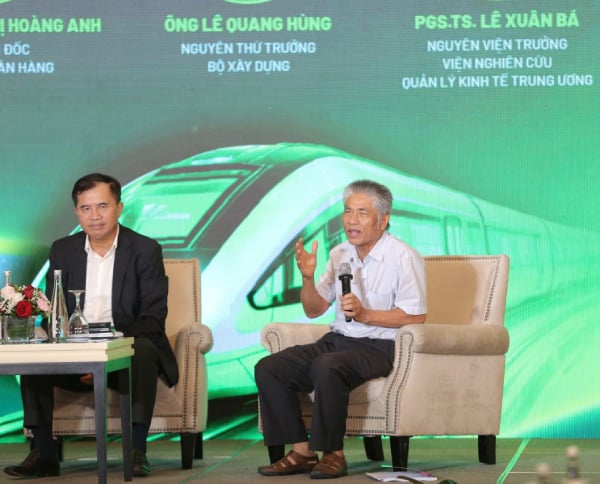
Third, in terms of cultural factors, Vietnamese people do not seem to have a strong tradition in the field of science and technology. From family, home to office, we have a habit of thinking that we must obey and follow the will of others. This is a cultural barrier. Such an environment will never encourage innovation. It is necessary to arouse a new spirit, an aspiration to develop science and technology among the entire population.
Therefore, Mr. Ba emphasized that in order to achieve a breakthrough, the state apparatus must create an environment that truly encourages, motivates and protects those who dare to think and dare to do.
"In particular, there needs to be a two-sided mechanism: one is to support and accept risks and mistakes for innovations for the common good; two is to strictly punish those who take advantage of innovation for personal gain. If such an environment cannot be built, Vietnam can hardly expect breakthrough development," the expert emphasized.
From the perspective of a unit directly promoting innovation, Mr. Do Tien Thinh - Deputy Director of the National Innovation Center (NIC), highly appreciated Resolution 57 of the Politburo.
"This is a real breakthrough when for the first time policy thinking has approached the ecosystem, emphasizing the close connection between the "three houses": schools, the state and businesses," Mr. Thinh said.
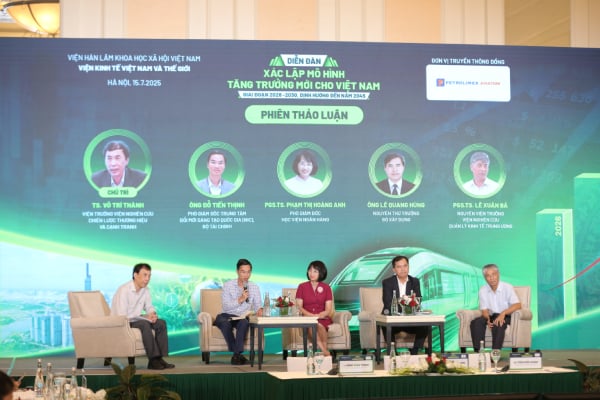
Speakers discuss at the forum.
However, to turn the resolution into reality, Mr. Thinh said that it is necessary to focus on filling the "gaps" in hard infrastructure and mechanisms. Specifically, Vietnam still lacks a true innovation zone, where there is a specific mechanism, concentrating universities, labs and large enterprises. In addition, it is necessary to change the mindset from "having a budget and then recruiting people" to "recruiting good people first, then building a budget" to attract "chief architects" to lead the industry.
According to Mr. Thinh, the thinking about capital for innovation must go beyond the framework of traditional banking. "Banks are a stable capital channel for businesses, while the 'living ground' for innovative startups is venture capital flows," he said and recommended that Vietnam focus on strongly attracting this capital flow, especially from abroad.
Regarding the digital economy, Professor, Dr. Tran Tho Dat - Chairman of the Council of the National Economics University shared that if this is considered a strong growth driver, Vietnam must have large investment projects, not only for transport infrastructure but also for information technology infrastructure.
"I really hope the Government will have large investment projects in information technology infrastructure, hardware and software. This is the core factor for the development of the digital economy," Mr. Tho suggested.
Source: https://doanhnghiepvn.vn/cong-nghe/con-nhieu-nut-that-khoa-hoc-cong-nghe-khong-the-but-pha/20250715061853917




![[Photo] Prime Minister Pham Minh Chinh attends the 80th Anniversary of the Vietnam Posts and Telecommunications Group](https://vphoto.vietnam.vn/thumb/1200x675/vietnam/resource/IMAGE/2025/9/6/39a89e5461774c2ca64c006d227c6a4e)
![[Photo] General Secretary To Lam attends the 80th Anniversary of the General Staff of the Vietnam People's Army](https://vphoto.vietnam.vn/thumb/1200x675/vietnam/resource/IMAGE/2025/9/6/126697ab3e904fd68a2a510323659767)

![[Photo] Rescuing people in flooded areas at the foot of Prenn Pass overnight](https://vphoto.vietnam.vn/thumb/1200x675/vietnam/resource/IMAGE/2025/9/6/19095b01eb844de98c406cc135b2f96c)
![[Photo] 80th Anniversary of the General Staff of the Vietnam People's Army](https://vphoto.vietnam.vn/thumb/1200x675/vietnam/resource/IMAGE/2025/9/6/49153e2a2ffc43b7b5b5396399b0c471)


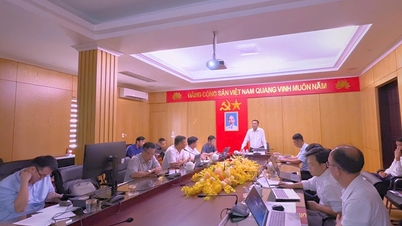


















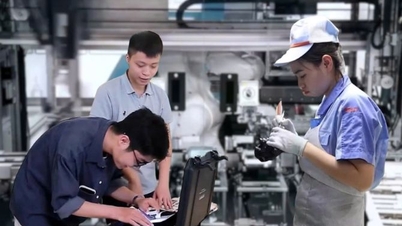





![[Photo] Many people directly experience beloved Uncle Ho and the General Secretaries](https://vphoto.vietnam.vn/thumb/1200x675/vietnam/resource/IMAGE/2025/9/6/2f4d9a1c1ef14be3933dbef3cd5403f6)






















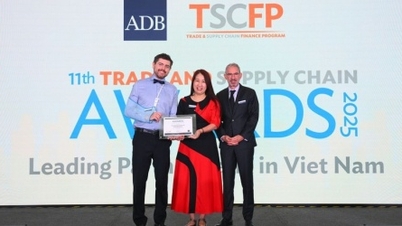

![[COMING UP] Workshop: Resolving concerns for Business Households about eliminating lump-sum tax](https://vphoto.vietnam.vn/thumb/402x226/vietnam/resource/IMAGE/2025/9/7/5627bb2d0c3349f2bf26accd8ca6dbc2)












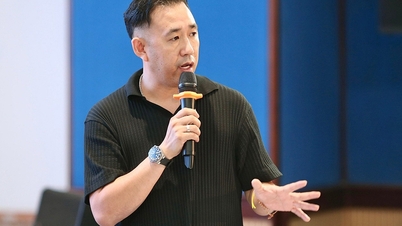
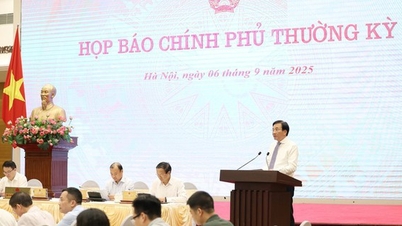






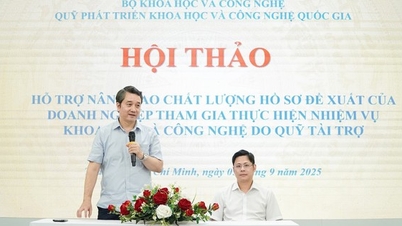

















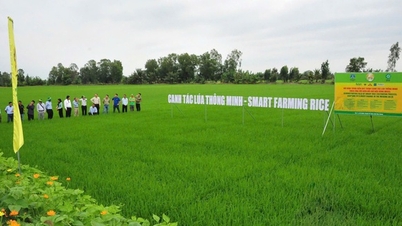






Comment (0)